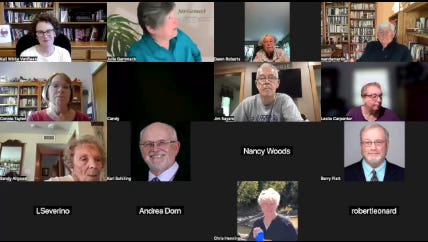Exploring Mental Health and Storytelling in Iowa: A Blend of Memoir and True Crime
In a compelling recent podcast episode, speakers delved into critical issues surrounding mental health, memoir writing, and the intriguing world of true crime, all stemming from their experiences in Iowa. The conversation offered insights into how personal tragedies can shape advocacy and storytelling, aiming to illuminate pervasive challenges faced by many Iowans today.
Mental Health: A Personal Reflection
One of the standout moments in the discussion involved a speaker recounting a deeply tragic event involving a neighbor’s son who succumbed to untreated mental illness, resulting in an unspeakable crime. This personal experience has fueled the speaker’s commitment to raising awareness about mental health and the stigma surrounding it. The dialogue highlighted critical connections between mental health challenges and broader societal issues, such as homelessness and food insecurity.
“Understanding mental health is crucial not just for individuals but for the safety and security of communities,” the speaker emphasized. Their advocacy serves as a reminder of the far-reaching implications of mental illness on public safety and social well-being.
The Art of Memoir Writing
The podcast also ventured into the nuances of memoir writing, distinguishing it from autobiography. While autobiographies chronicle an entire life, memoirs focus on thematic slices of experience. Speakers discussed the complexities of selecting which life events to share, noting that personal stories, even those deemed “ordinary,” can captivate when told with honesty.
“Writers must navigate the delicate balance of telling their truths while considering the privacy of others,” one speaker observed. Clever techniques, such as employing pseudonyms or crafting composite characters, were suggested as essential tools for protecting identities while maintaining narrative integrity.
True Crime: From Passion to Profession
A guest shared how an initial foray into the true crime genre turned into a serious literary pursuit, driven by a fascination with real-life criminal narratives. Despite playful musings about launching a true crime podcast, the conversation underscored how varied interests can enrich a writer’s journey.
“I never intended to dive into true crime, but the stories are so compelling that they draw you in,” the guest remarked, highlighting the organic evolution of creative passions.
The Writer’s Perspective in Iowa
Reflecting on the experience of being a writer in Iowa, speakers expressed how local humility can sometimes hinder self-promotion, leading to stereotypes that Iowa writers struggle to achieve success. Nonetheless, they acknowledged a vibrant literary community that thrives despite feeling overshadowed by larger art scenes.
Engaging with Audience Concerns
The session included an interactive element, allowing the audience to pose questions about the intricacies of memoir writing, particularly around family dynamics and differing perspectives on shared history. Participants encouraged embracing personal interpretations as valid, while humorously acknowledging the occasional technical glitches that come with online discussions.
Legal and Ethical Considerations
The podcast also broached the legal ramifications of fictionalizing real-life events in memoirs. Notable controversies, such as those involving authors James Frey and Alice Sebold, prompted a conversation about the responsibility writers have to balance creative storytelling with factual accuracy.
Ultimately, this episode serves as an enlightening resource for anyone intrigued by the intersections of mental health, personal narratives, and true crime. Through reflective dialogue and practical advice, the speakers inspire listeners to harness their experiences and transform them into powerful stories. For those in the Iowa literary scene, this conversation sheds light on the ongoing struggles and triumphs of personal storytelling.
Developing updates from the Okoboji Writers’ and Songwriters’ Retreat will be forthcoming.

Focuses on crime, public safety, and regional events.
Bio: Marcus is a community-based journalist passionate about reporting impactful stories that matter most to readers.

